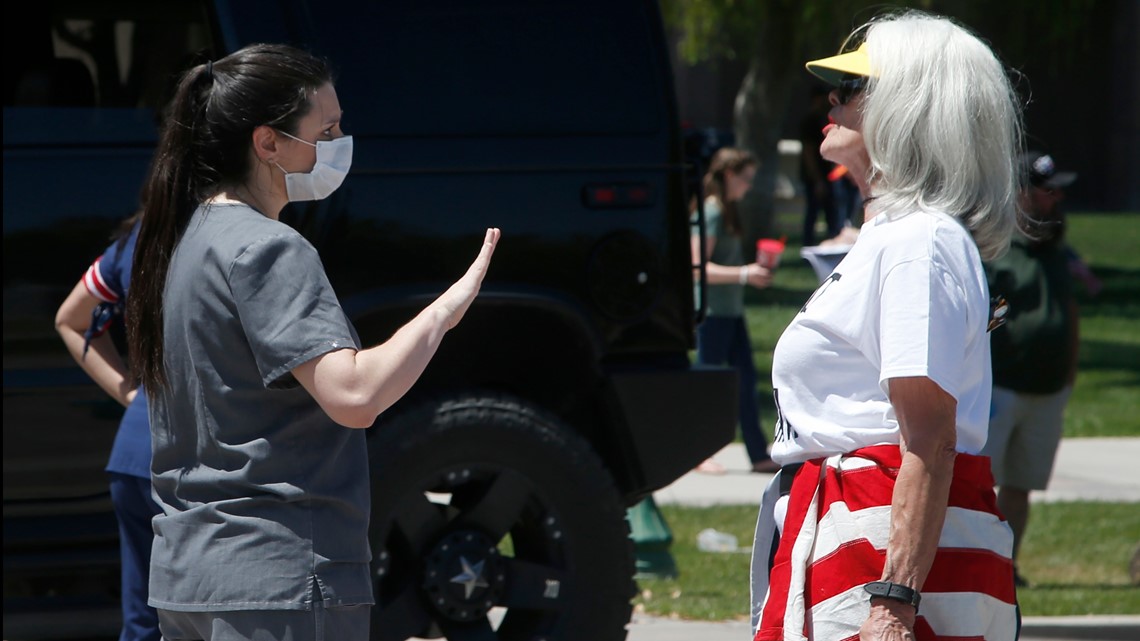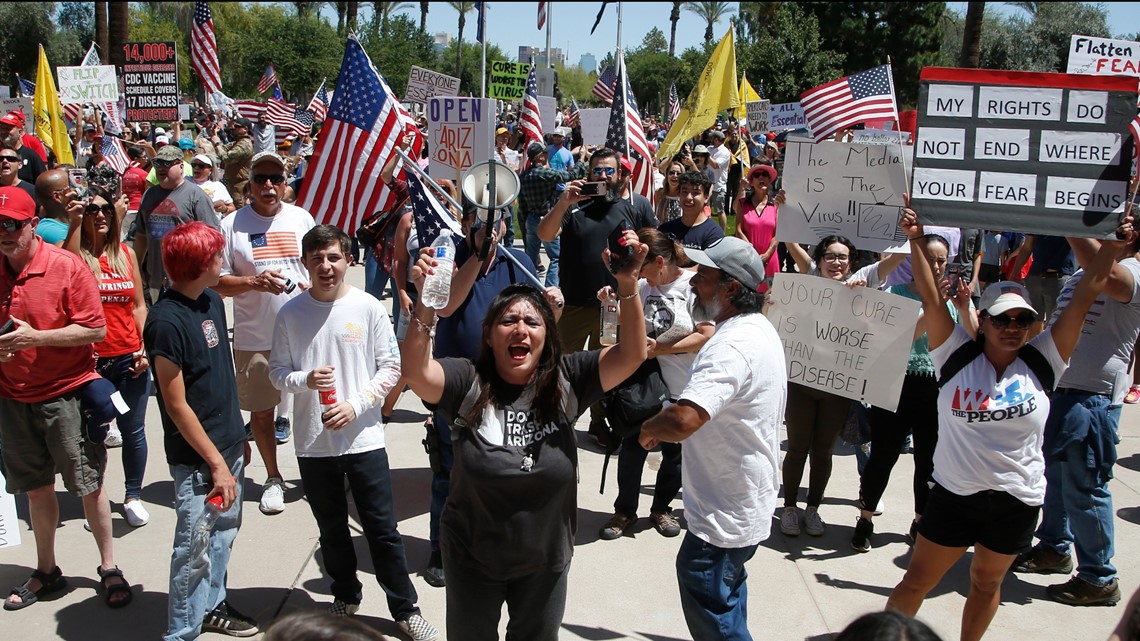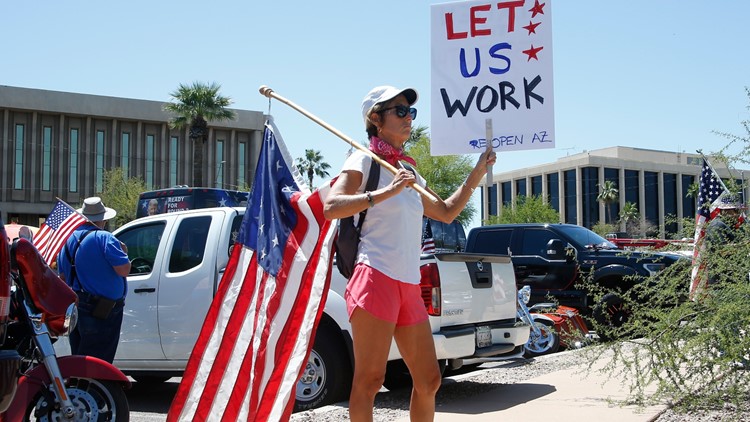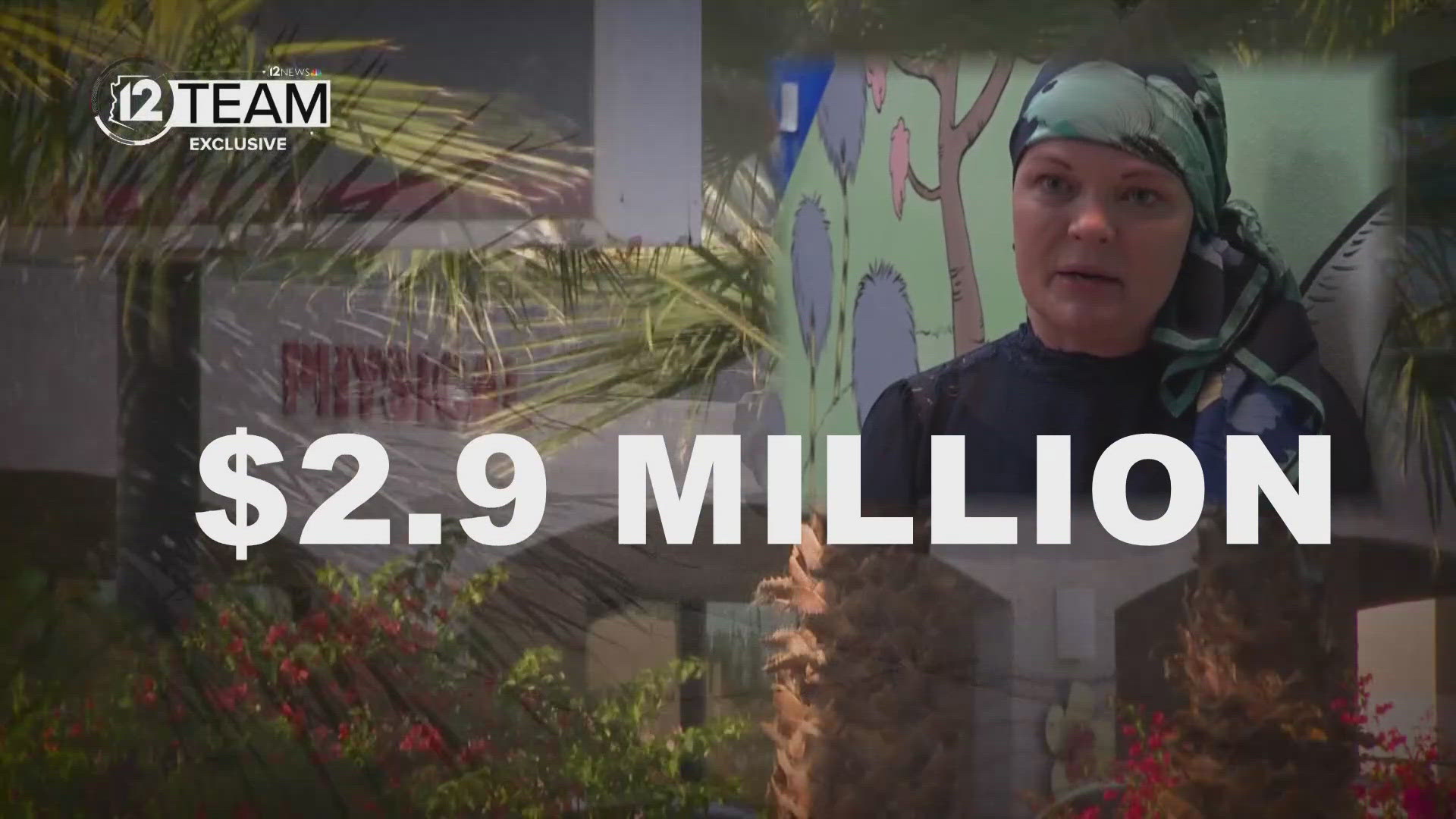PHOENIX — The last two weeks, as more states are about a month into shutdowns and social distancing, some of the population has grown restless waiting for the economy to reopen amid the coronavirus pandemic.
In multiple states across the country, including in Arizona on Monday, people have held protests, telling state governments to reopen businesses arguing that the governments are invading personal freedoms.




So what are the rights of the state during a health emergency and does this segment of the population have a point that personal freedoms are being stepped on?
We spoke with Daniel Barr, a partner at Perkins Coie law firm and a constitutional law expert, to clear up some questions regarding states' rights vs. civil liberties in a pandemic.
First, the ability to enforce a quarantine (which Arizona has not done) or close certain businesses in the name of health protection for citizens is not a federal right, but a state right.
"The 10th Amendment to the constitution retains all other rights to the states," Barr said. "One of those rights is sort of a general police power of the states, and also cities and counties, for the health protection of its citizens. The states retain the rights for protecting the health and welfare of its citizens."
What state law provides is that during a health emergency – which includes a pandemic – where the governor declares an emergency, the governor now has the right to enforce rules like shutdowns or even mandatory quarantines or mandatory vaccinations.
Gov. Doug Ducey declared a public health emergency in Arizona on March 11.
These are powers the governor would not have in the absence of an emergency.
Barr says the U.S. Supreme Court in several instances over the past 200 years has held that the states have this sovereign power to exercise their power to protect the health and welfare of its citizens.
"There was a case in 1905 when a pastor in Massachusetts brought a case saying the State of Massachusetts could not force him to get a smallpox vaccination and the U.S. Supreme Court at that time sided with the state, saying its healthcare powers weighed over the individual," Barr said.
Someone in opposition to the state's orders during a pandemic would first have the high burden of proving the state has abused its powers and then would have to prove the health emergency wasn't actually a health emergency.
"If someone could show that there wasn't a real emergency, and I think a lot of the people protesting today at the bottom feel that there really isn't an emergency, they would have to go convince a court that the state's claim that there was a real emergency was not factually true," Barr said.
But Barr says a court would give a lot of deference to a state's health care experts, who say this is a pandemic and the only way to effectively fight it at the moment, in the absence of a vaccine, is to socially distance.
Also, for anyone challenging the stay at home orders in court, Barr says the state would have to show that there is a compelling state interest (in this case, combating the pandemic) and that it was using the least restrictive means to keep people away from large gatherings.
"The state's list of 'essential businesses' and the state's somewhat lax way of enforcing the stay-in-place order would be facts the state would use to show that it is using the least restrictive means to accomplish its compelling interest," Barr said.
Whether laws might change after the coronavirus pandemic is over, Barr said it's certainly possible.
"When we get through where we are right now and return back to normal, I could see people saying we need to tweak our laws on how to deal with this," he said. "After all, we haven't had an active pandemic for what,100 years? Nobody living today has any experience with something of this scope, so I'm sure we've learned some lessons from this."
READ MORE



